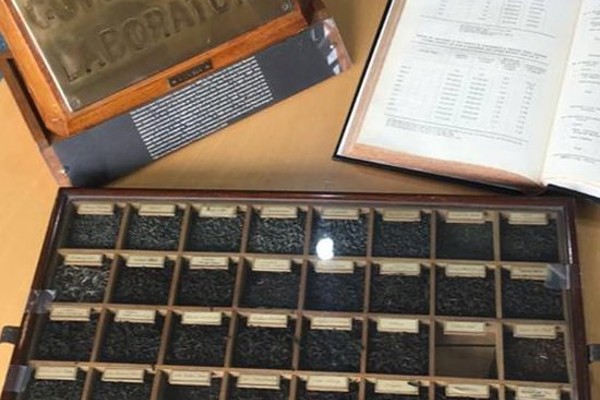Food Safety Week and beyond: LGC’s long history in food testing
Food Safety Week, organised by the UK’s Food Standards Agency, is an opportunity to learn more about current food issues, including food crime, compliance and food hygiene. This year’s campaign celebrates “the people who protect your plate” – the workers who ensure the UK public can trust the food they eat, including inspectors, local authorities, and public analysts.
Also at the forefront of the fight for food safety are chemists, who analyse food, drinks and supplements to ensure manufacturers can verify the safety of their food products.

Consumers trust that when they buy food and drink, they are getting exactly what they’ve been told they are getting. Each food has a distinct composition, much like its own fingerprint, and with the right expertise and tools, it’s possible to study these foods to determine their authenticity. LGC has been involved in food testing for over 175 years. In fact, it’s the very reason we were established. In 1842, the Board of Excise needed a scientific authority to see that goods, like tea, tobacco and spirits, were not adulterated for profit, and so it created the Government Laboratory.
The Government Chemist role was created in 1909, to ensure the Laboratory of the Government Chemist could work independently of the Inland Revenue department (which provided staff to the Laboratory) and the Board of Customs and Excise (which controlled it). Nowadays the Government Chemist oversees the statutory function of referee analyst, resolving disputes over analytical measurements, particularly in relation to food regulatory enforcement.
In order for food producers to know with certainty that their food is authentic, it’s necessary to compare what they’ve produced with a known and verified version of the food – this is called a reference material, or standard. Currently, we have over 15,000 reference materials for food analysis, for everything from allergens, contaminants, and toxins to food flavourings, dyes and proteins, and much more.
Chemists also study new methods of authenticating foods, including via mass spectrometry, which is considered to be the gold standard in analysis, especially when combined with chromatography. Mass spectrometers analyse a sample’s elemental molecular weight, which is its ‘fingerprint’. The tools and expertise of the National Measurement Laboratory at LGC allow our measurement scientists to be accurate about the content of a sample to up to one part per quadrillion. In other words, we can detect one lump of sugar dissolved in a bay. These capabilities allow us to work on specific projects, tailoring our research to benefit many different sectors and solve specific problems.
This was particularly evident during a recent case studying selenium within food products and supplements. It is essential that the correct amount and species of selenium is present in order for fortified food products and supplements to be safe for human consumption. Selenium-enriched foods and supplements have become more prominent in Europe since it has moved to using more wheat that is naturally low in selenium.
However the accurate measurement of total selenium in food and food supplements presents analytical challenges due to the complex nature of food samples. Furthermore, selenium speciation analysis presents additional challenges due to the low levels of each specific selenium species and the molecular complexity of such samples.
LGC’s measurement research team for inorganic mass spectrometry has extensive experience in selenium speciation and was able to develop and characterise a range of reference materials, including a matrix selenium-enriched wheat flour standard, to support the food industry.
With over 175 years in the food testing arena, we have a lot to say about the subject, so if you want to learn more, head over to our website where you can read case studies and learn about our reference materials.
You can also join us at next week’s Government Chemist Conference, where we will be discussing current food safety issues at length, including Brexit, food authenticity, and food regulation, with many experts in their fields, including the FSA themselves. Visit the conference website to view the entire programme and register.
